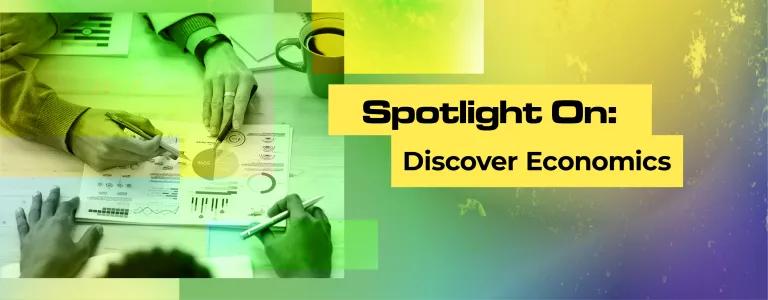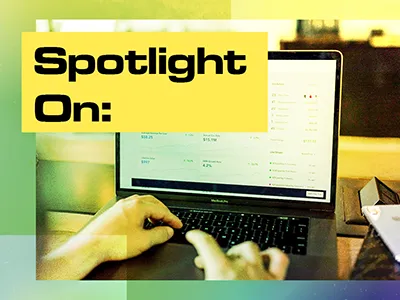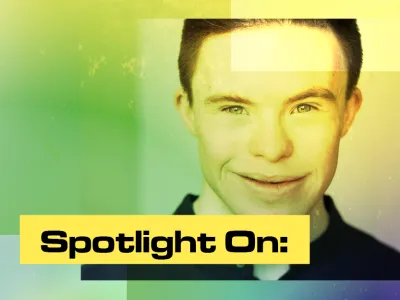
Spotlight On: Discover Economics
It’s the next installment of our new series Spotlight On, where we explore issues that matter the most to you, with professionals in those fields.
This time we’ve teamed up with Discover Economics - a campaign led by the Royal Economic Society aiming to broaden the appeal of economics to young people, attract students from underrepresented groups and change perceptions of economics and economists. They’re here to tell you more about the diversity gap in the economics industry and what they’re doing to bridge the gap...
Have you ever thought about studying economics? Do you even know what the subject is about? Do you know what careers you might get from an Economics degree? Let's start with the basics.
What is Economics?
A textbook (or Wikipedia) definition is that economics is a social science that deals with allocating scarce resources in the face of unlimited wants. If that isn't very illuminating, it's just a fancy way of saying economics is the science of choice.
Economists are social scientists who study people and behaviour, specifically, the choices people make given their limited resources. These choices can cover a broad range of things, including every aspect of your life; from what you eat, what you wear and where you go on holiday, to what you study, where you live and what job you do; all these choices involve a trade-off (an economic transaction) at one point or another. Economists try to understand the factors and incentives that shape choices and how those choices affect individuals and society – using both analytical and data tools to get deep insights.
It's not just individuals who make choices; companies have to decide what to produce, who to hire, and how much to spend on research and development. Governments also choose how much to spend on infrastructure, who to tax, and what regulations to implement. There are some big choices ahead for policymakers – how to tackle climate change, how much to reduce carbon emissions, and how to help groups who have been disadvantaged by the COVID-19 pandemic. Economics deals with all these issues.

What can you do with an economics degree?
Many economics graduates work as economists, forecasting the macro-economy (looking at the decisions of countries and governments), providing expert advice in industry, government, and central banks. An economics degree also gives you a great skill set to use in a wide range of different careers. You learn to simplify complicated problems, develop analytical skills that can be applied in any industry, and understand how different markets work. Want a job with a tech company? Economics also equips you with the skills to handle and analyse big data.
You may be surprised to learn that the biggest employer of people with economics skills is the NHS – they need a lot of analytical thinkers with good data skills. With an economics degree, you will be well-equipped to tackle some of the most significant technology, health, sustainability, and finance problems.
What is the diversity problem in economics, and why is it important?
Currently, several groups are under-represented among economics students. This includes students from ethnic minority and state-school backgrounds as well as women. A lot has been talked – and done - about the lack of women in STEM, but the situation in economics is just as bad, if not worse.
This diversity problem is important for two main reasons. First, society is changing and becoming more diverse, but the economists that sit at the heart of policymaking are not changing. If the people making policy decisions and shaping institutions are not representative of the broad and diverse community, this can lead to ineffective policies that do not benefit large groups of people and potentially exacerbate existing inequalities in the UK.
Second, economics graduates tend to be, on average, among the highest-earning graduates (second only to medicine) and go on to powerful positions in business and government. Studying economics can lead to a materially rewarding and influential career. If women or people from ethnic minority or disadvantaged backgrounds are not pursuing these careers, they miss out on these rewards, perpetuating ethnic and gender pay gaps.

What is Discover Economics, and how do I get involved?
Discover Economics is a campaign led by the Royal Economic Society which aims to:
- Broaden the appeal of economics to potential students
- Change perceptions of economics and economists
- Attract more students from under-represented groups to study economics
The campaign was set up to target the problem that many young people lack opportunities to find out about economics because it isn't an option at their school/college, or they didn't get a chance to take it because of the limited number of subjects taken beyond GCSE.
We provide information and create opportunities for the target group of 15–17-year-olds to learn more about the subject and the career opportunities it opens up. We have run panel discussions and careers events and launched mini-campaigns for Black History Month, International Women's Day, and Pride Month to showcase a diverse range of economists. We also have a series of podcasts in which leading economists answer the question, ’how did I get here?’ And, we are excited to launch a student champion programme - open to economics and non-economics students - in the autumn to link university students with schools.
Find out more about diversity in economics on our website. If you are a student, make sure to sign up for our newsletter, follow us on Twitter, share our updates and lookout for opportunities to get involved and find out more.




